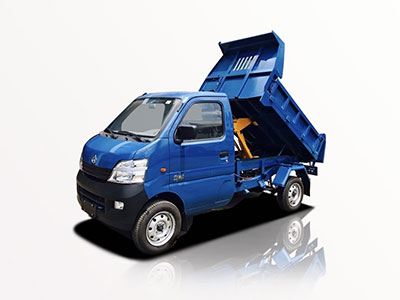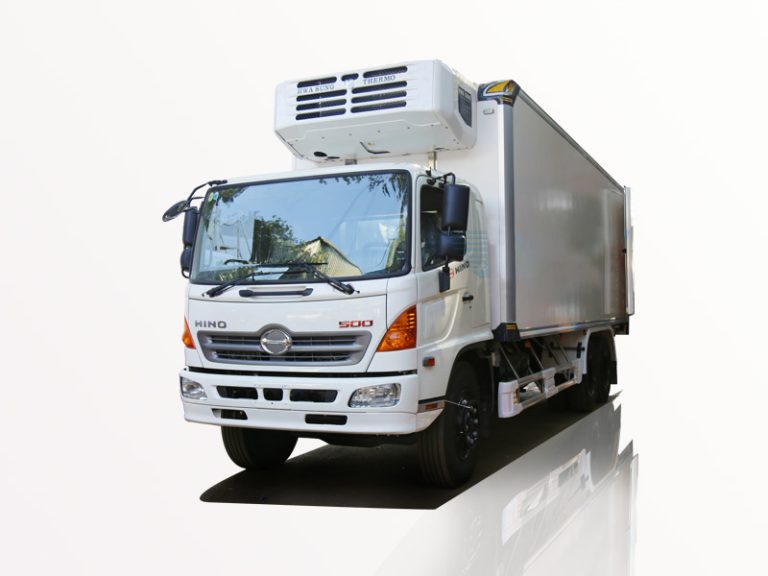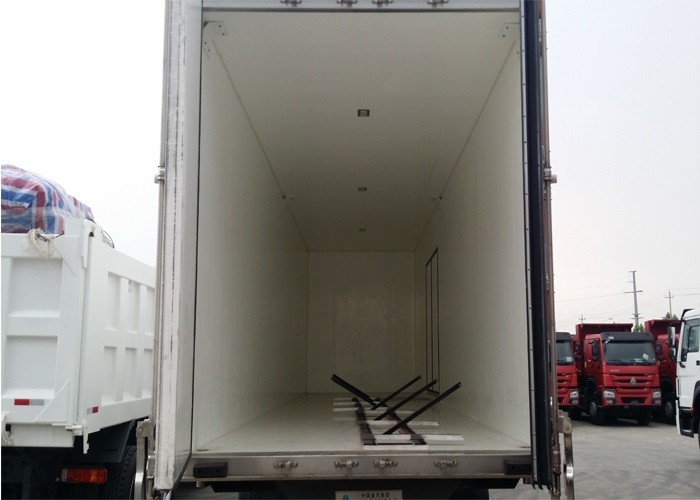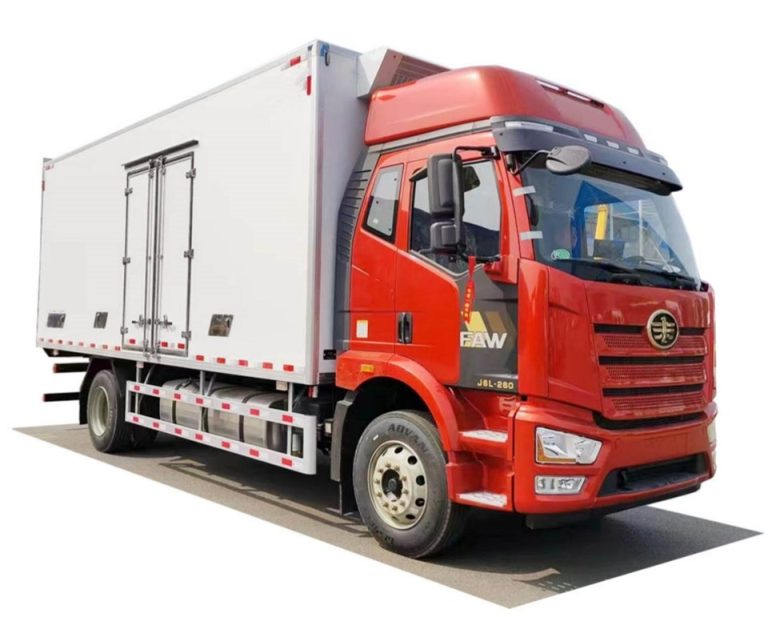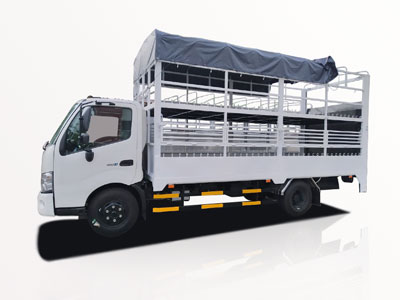Introduction
Water tank trucks play a vital role in various industries, from construction to agriculture, providing essential water supply where needed. These vehicles are designed to transport water efficiently, making them indispensable for firefighting efforts, dust control, and irrigation. In this comprehensive guide, we will explore everything you need to know about water tank trucks, including their different types, uses, maintenance tips, and much more, ensuring you are well-informed whether you are a potential buyer or a curious reader.
1. What is a Water Tank Truck?
A water tank truck is a specialized vehicle designed to carry large quantities of water. These trucks are equipped with a tank mounted on a chassis, ensuring the safe transportation of water to various locations. They are used in numerous applications, including construction sites, agricultural endeavors, and emergency response scenarios.
1.1 Key Components of Water Tank Trucks
Water tank trucks consist of several key components that make them effective for water transportation:
- Tank: The main component where water is stored, made of durable materials to prevent leaks.
- Pump: Used to fill and discharge water as required.
- Hoses: Flexible tubes attached to the pump for easy water delivery.
- Chassis: The base of the truck that supports the tank and other systems.
- Controls: Allow the driver to operate the pump and manage the water flow.
2. Types of Water Tank Trucks
Water tank trucks come in various designs tailored to specific applications. Here are the most common types:
2.1 Municipal Water Tank Trucks
Designed for municipal use, these trucks are often used to supply drinking water, perform street cleaning, and combat wildfires.
2.2 Construction Water Tank Trucks
Common on construction sites, these trucks provide water for dust control, concrete mixing, and other construction-related activities.
2.3 Agricultural Water Tank Trucks
Used for agricultural irrigation, these trucks help provide water for crops, livestock, and other farming needs.
2.4 Firefighting Water Tank Trucks
Equipped with additional firefighting equipment, these trucks deliver water during fire emergencies, often featuring high-capacity pumps and hoses.
2.5 Recreational and Portable Water Tank Trucks
These smaller models are designed for outdoor events, providing water for recreation, outdoor activities, and food services.
3. Applications of Water Tank Trucks
Water tank trucks are utilized in various sectors due to their versatile applications. Here are some notable examples:
3.1 Dust Control in Construction
Water tank trucks are regularly used on construction sites to manage dust, ensuring a safer and healthier working environment.
3.2 Emergency Response to Fires
During firefighting operations, water tank trucks provide critical water supply quickly and efficiently, often in remote areas where traditional sources may not be available.
3.3 Irrigation in Agriculture
Farmers depend on water tank trucks to deliver water for irrigation, especially in dry regions where water sources are scarce.
3.4 Industrial Functions
Industries often require large amounts of water for processing, cooling, and other operational tasks, making water tank trucks central to their functioning.
4. Choosing the Right Water Tank Truck
When selecting a water tank truck, consider the following critical factors:
4.1 Capacity
The size of the tank is crucial; it should be adequate for your specific needs, whether for a small agricultural project or large-scale construction.
4.2 Material and Durability
The tank material plays a significant role in preventing leaks and ensuring longevity. Stainless steel and polyethylene are common options.
4.3 Pump Features
The pump’s capacity, type, and features are essential for efficient operation, especially in emergency situations.
4.4 Regulatory Compliance
Ensure the truck meets local regulations regarding water transport, especially for potable water delivery.
5. Maintenance Tips for Water Tank Trucks
Regular maintenance is crucial to ensure the longevity and efficient operation of water tank trucks. Here are some essential maintenance tips:
5.1 Regular Inspections
Conduct frequent inspections to check for leaks, corrosion, and other wear and tear signs.
5.2 Cleaning
Keep the tank and hoses clean to prevent contamination, especially if transporting potable water.
5.3 Pump Maintenance
Regularly check the pump system for any blockages or wear. Replacing filters as necessary will keep the pump functioning well.
5.4 Tire and Engine Checks
Monitor tire pressure and engine functionality to ensure safe and effective operation of the vehicle.
6. Cost of Water Tank Trucks
The cost of water tank trucks can vary widely based on their size, features, and capacity. Below is a general overview of pricing:
| Type | Price Range |
|---|---|
| Municipal Water Tank Truck | $50,000 – $150,000 |
| Construction Water Tank Truck | $40,000 – $120,000 |
| Agricultural Water Tank Truck | $25,000 – $100,000 |
| Firefighting Water Tank Truck | $80,000 – $200,000 |
| Portable Water Tank Truck | $15,000 – $50,000 |
7. Environmental Impacts and Considerations
While water tank trucks are essential for many operations, they can pose potential environmental risks. Here are some aspects to consider:
7.1 Water Source Sustainability
Ensure that the water sources utilized for filling the tanks are sustainable and not depleting local water resources.
7.2 Contamination Potentials
Contamination can occur if tanks are not cleaned or maintained properly. This highlights the importance of routine inspections.
7.3 Emissions and Energy Consumption
The trucks’ emissions and fuel consumption should be monitored, promoting the use of more energy-efficient models whenever possible.
8. The Future of Water Tank Trucks
As technology advances, water tank trucks will likely see improved designs for efficiency and sustainability. Innovations may include:
8.1 Smart Water Tank Technologies
Integrating GPS and monitoring systems can optimize routes and water usage, enhancing overall efficiency.
8.2 Eco-Friendly Materials
Manufacturers may start utilizing more recyclable materials, minimizing environmental impacts during production.
FAQ
What is the average lifespan of a water tank truck?
The average lifespan of a water tank truck can range from 10 to 15 years, depending on maintenance and usage.
Can water tank trucks carry other liquids?
Yes, many water tank trucks can be adapted to carry other non-hazardous liquids, but this requires proper cleaning and potential modifications.
How much water can a typical water tank truck hold?
Water tank trucks generally hold between 1,000 to 5,000 gallons, depending on the truck’s size and design.
Are there specific licenses required to operate a water tank truck?
Yes, depending on local laws and regulations, drivers may need specific commercial driver’s licenses (CDL) to operate larger water tank trucks.
How do water tank trucks contribute to fire safety?
Water tank trucks can quickly deliver large amounts of water to firefighting sites, especially in areas that lack quick access to hydrants or water sources.
What maintenance costs should be expected for a water tank truck?
Maintenance costs can vary but typically include routine inspections, cleaning, pump repairs, and tire replacements, which can amount to a few thousand dollars annually.
